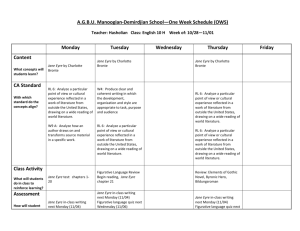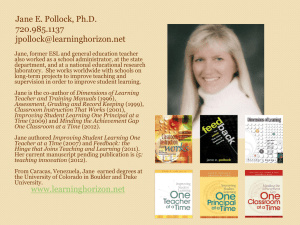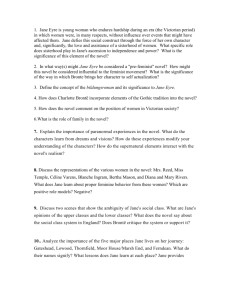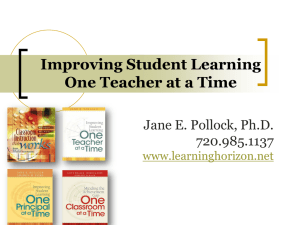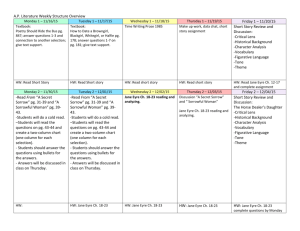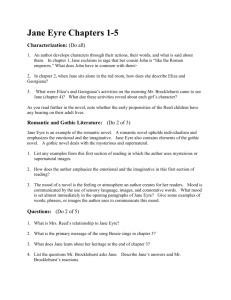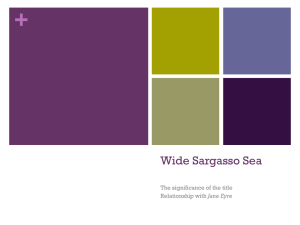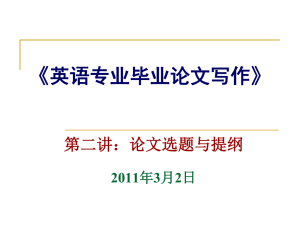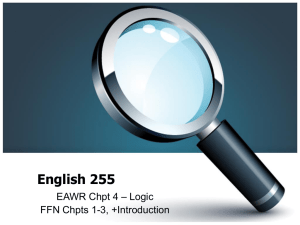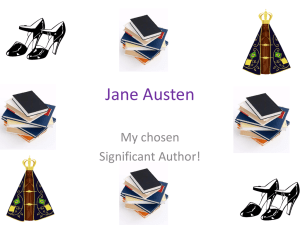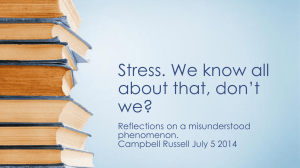Jane Eyre Introduction
advertisement
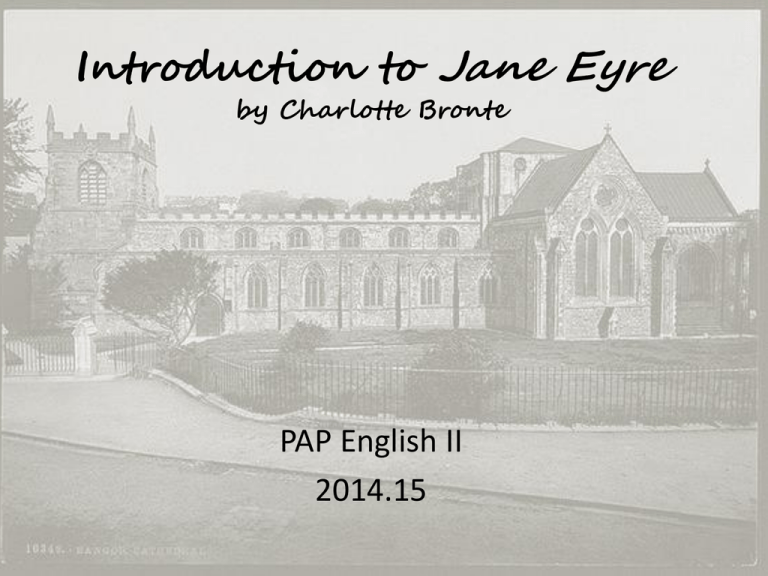
Introduction to Jane Eyre by Charlotte Bronte PAP English II 2014.15 When the story begins . . . • Jane Eyre is an orphan in 19th c. England. (1800s) • Her aunt has agreed to raise her but treats her badly: – She allows Jane’s cousin to bully her – and punishes Jane harshly, – yet she expects Jane to be thankful. • When Jane tries to stand up for herself, her aunt is furious. • She calls Jane an ungrateful child and sends her away to boarding school. The girls sleep two to a bed, get up before dawn, bathe in ice-cold water, eat burnt porridge for breakfast, and are taught to suffer in silence. • Jane is caught between her desire to fight back and her fear of being punished—or labeled “bad” by the teachers and other girls. • Luckily, Jane meets two good friends—Miss Temple, a kind teacher at the school, and Helen Burns, an older student who teaches Jane the importance of patience and forgiveness. Children like you… • You were expected to be 100% obedient at ALL times • What kept you in line: – Beatings or solitary confinement – Imposing self-discipline or severe punishment in this world, and a threat of terrible penalties in the world to come (the Ten Commandments were often quoted) • Education: Children were either educated at home by a governess or sent away to school where the treatment was often cruel. Jane Eyre is thought to be highly autobiographical. • Brontë included many events in the novel that paralleled her own life. • She used a masculine pen name because women writers were not taken seriously at that time in Victorian England. • All events are told in the past from Jane’s point of view. • The setting is early 19th Century England. • Jane Eyre is classified as both a Gothic and a Romantic novel. So why is Jane Eyre considered a groundbreaking novel? The heroine is small, plain, & poor The heroine is the first female character to claim the right to feel strongly about her emotions and act on her convictions This romantic ground had previously been reserved for males. Such a psychologically complex heroine had never before been created. • During this time period, men and women were separated into separate “spheres” • Men occupied the world of work, knowledge, power, society, etc. • Women occupied the world of the home and family. • There were few occupations available to women. Jane Eyre ~ A Feminist Novel Jane Eyre is also a Bildungsroman [beel-doo ngks-raw-mah-nuh] • A novel that considers the development (psychological/spiritual) of a person from childhood to maturity, to the point at which the protagonist recognizes his/her place and role in the world And, Jane Eyre is also a Gothic Novel because it features: • • • • • • • • • Mystery Haunted castle or house Dreaming and nightmares Doppelgänger / alter ego Physical imprisonment A Heroine who faces danger Psychological entrapment and helplessness Involvement of the supernatural Psychology of horror / terror Important Ideas Explored in Jane Eyre ~ • • • • • • • • Love vs. Autonomy Issues of Class and Society/Caste Systems Gender Roles / Gender Relations Religion Feeling vs. Judgment The Spiritual and the Supernatural The Power and Influence of Home Coming of Age As you read, remember these questions and continue to develop your answers. 1. How does Jane grow and develop as characters are introduced into and separated from her and her life? 1. How does the presence and absence of these characters represent significant moments in Jane’s transformation? I expect you to you do the following: SUMMARIZE each chapter, including important details. Note key TURNING POINTS or moments of high drama. Keep track of the CHARACTERS, and their connections to one another. Make a list of any QUESTIONS you have, to be used during class discussions. Your book should look like this And don’t ignore all that VOCABULARY.
